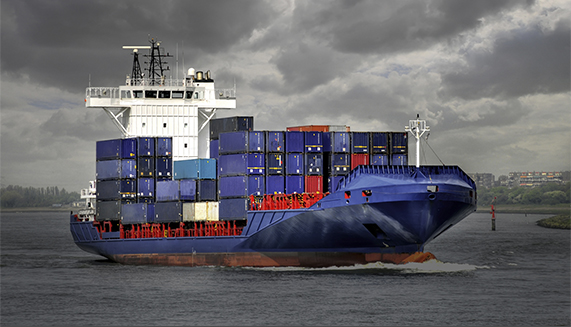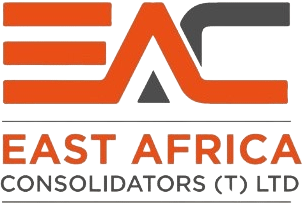

INCOTERMS
The following is a list of the most common INCO terms used in international trade.
CFR
Cost and Freight (named port of destination)
“Cost and freight ” means that the seller delivers when the goods pass the ship’s rail in the port of shipment.
The seller must pay the costs and freight necessary to bring the goods to the named port of destination but the risk of loss of or damage to the goods, as well as any additional costs due to events occuring after the time of delivery, are transferred from the seller to the buyer.
The CFR term requires the seller to clear the goods for export.
This term can only be used for sea and inland waterway transport. If the parties do not intend to deliver the goods across the ship’s rail, the CPT term should be used.
CIF
Cost, Insurance and Freight (named port of Destination)
“Cost, insurance and freight ” means that the seller delivers when the goods pass the ship’s rail in the port of shipment.
The seller must pay the costs and freight necessary to bring the goods to the named port of destination but the risk of loss of or damage to the goods, as well as any additional costs due to events occurring after the time of delivery, are transferred from the seller to the buyer. However, in CIF the seller also has to procure marine insurance against the buyer’s risk of loss of or damage to the goods during the carriage.
Consequently, the seller contracts for insurance and pays the insurance premium. The buyer should note that under the CIF term the seller is required to obtain insurance only on minimum cover. Should the buyer wish to have the protection of greater cover, the buyer would either need to agree as much expressly with the seller or to make his/her own extra insurance arrangements.
The CIF term requires the seller to clear the goods for export.
This term can be used only for sea and inland waterway transport. If the parties do not intend to deliver the goods across the ship’s rail, the CIP term should be used.
CIP
Carriage and Insurance Paid to (named place of destination)
” Carriage and insurance paid to ….” means that the seller delivers the goods to the carrier nominated by the seller, but the seller must in addition pay the cost of carriage necessary to bring the goods to the named destination. This means that the buyer bears all risks and any additional costs occurring after the goods have been so delivered. However, in CIP the seller also has to procure insurance against the buyer’s risk of loss of or damage to the goods during the carriage.
Consequently, the seller contracts for insurance and pays the insurance premium.
The buyer should note that under the CIP term the seller is required to obtain insurance only on minimum cover. Should the buyer wish to have the protection of greater cover, the buyer would either need to agree as much expressly with the seller or to make his/her own extra insurance arrangements.
” Carrier ” means any person who, in a contact of carriage, undertakes to perform or to procure the performance of transport, by rail, road, air, sea, inland waterway or by a combination or such modes.
If subsequent carriers are used for the carriage to the agreed destination, the risk passes when the goods have been delivered to the first carrier.
The CIP term requires the seller to clear the goods for export.
This term may be used irrespective of the mode of transport, including multimodal transport.
CPT
Carriage Paid To (named place of destination)
” Carriage paid to …. ” means that the seller delivers the goods to the carrier nominated (by the seller) but the seller must in addition pay the cost of carriage necessary to bring the goods to the named destination. This means that the buyer bears all risks and any other costs occurring after the goods have been so delivered.
” Carrier ” means any person who, in a contract of carriage, undertakes to perform or to procure the performance of transport, by rail, road, air, sea, inland waterway or by a combination of such modes.
If subsequent carriers are used for the carriage to the agreed destination, the risk passes when the goods have been delivered to the first carrier.
The CPT term requires the seller to clear the goods for export.
This term may be used irrespective of the made of transport including multimodal transport.
DAF
Delivered At Frontier (named place)
” Delivered at frontier ” means that the seller delivers when the goods are place at the disposal of the buyer on the arriving means of transport not unloaded, cleared for export, but not cleared for import at the named point and place at the frontier, but before the customs border of the adjoining country. The term “frontier ” may be used for any frontier including that of the country of export. Therefore, it is of vital importance that the frontier in question be defined precisely by always naming the point and place in the term.
However, if the parties wish to seller to be responsible for the unloading of the goods from the arriving means of transport and to bear the risks and costs of unloading, this should be made clear by adding explicit wording to this effect in the contract of sale.
This term may be used irrespective of the mode of transport when goods are to be delivered at a land frontier. When delivery is to take place in the port of destination, on board a vessel or on the quay (wharf), the DES or DEQ terms should be used.
DDP
Delivered Duty Paid (named place of destination)
” Delivered duty paid ” means that the seller delivers the goods to the buyer, cleared for import, and not unloaded from any arriving means of transport at the named place of destination. The seller has to bear all the costs and risks involved in bringing the goods thereto including, where applicable, any ” duty” (which term includes the responsibility for an the risk of the carrying out of formalities, customs duties, taxes and other charges) for import in the country of destination.
Whilst the EXW term represents the minimum obligation for the seller, DDP represents the maximum obligation.
This term should not be used if the seller is unable directly or indirectly to obtain the import license.
However, if the parties wish to exclude from the seller’s obligations some of the costs payable upon import of the goods (such as value-added tax: VAT), this should be made clear by adding explicit wording to this effect in the contract of sale.
If the parties wish the buyer to bear all risks and costs of the import, the DDU term should be used.
This term may be used irrespective of the mode of transport but when delivery is to take place in the port of destination on board the vessel or on the quay (wharf), the DES or DEQ terms should be used.
DDU
Delivered Duty Unpaid (named place of destination)
” Delivered duty unpaid ” means that the seller delivers the goods to the buyer, not cleared for import, and not unloaded from any arriving means of transport at the named place of destination. The seller has to bear the costs and risks involved in bringing the goods thereto, other than, where applicable, any duty (which term includes the responsibility for and the risks of the carrying out of customs formalities, and the payment of formalities, customs duties, taxes and other charges) for import in the country of destination. Such ” duty” has to be borne by the buyer as well as any costs and risks caused by his failure to clear the goods for import in time.
However, if the parties wish the seller to carry out customs formalities and bear the costs and risks resulting therefrom as well as some of the costs payable upon import of the goods, this should be made clear by adding explicit wording to this effect in the contract of sale.
This term may be used irrespective of the mode of transport but when delivery is to take place in the port of destination on board the vessel or on the quay (wharf), the DES or DEQ terms should be used.
DEQ
Delivered Ex Quay (named port of destination)
” Delivered ex quay ” means that the seller delivers when the goods are placed at the disposal of the buyer not cleared for import on the quay (wharf) at the named port of destination. The seller has to bear costs and risks involved in bringing the goods to the named port of destination and discharging the goods on the quay (wharf). The DEQ term requires the buyer to clear the goods for import and to pay for all formalities, duties, taxes and other charges upon import.
This is a reversal from previous incoterms versions which required the seller to arrange for import clearance.
If the parties wish to include in the seller’s obligations all or part of the costs payable upon import of the goods, this should be made clear by adding explicit wording to this effect in the contract of sale.
This terms can be used only when the goods are to be delivered by sea or inland waterway or multimodal transport on discharging from a vessel onto the quay (wharf) in the port of destination. However if the parties wish to include in the seller’s obligations the risks and costs of the handling of the goods from the quay to another place (warehouse, terminal, transport station, etc.) in or outside the port, the DDU or DDP terms should be used.
DES
Delivered Ex Ship (named port of destination)
” Delivered ex ship ” means that the seller delivers when the goods are placed at the disposal of the buyer on board the ship not cleared for import at the named port of destination. The seller has to bear all the costs and risks involved in bringing the goods to the named port of destination before discharging. If the parties wish the seller to bear the costs and risks of discharging the goods, then the DEQ term should be used.
This term can be used only when the goods are to be delivered by sea or inland waterway or multimodal transport on a vessel in the port of destination.
EXW
Ex Works (named place)
“Ex works” means that the seller delivers when the goods are placed at the disposal of the buyer at the seller’s premises or another named place (i.e. works, factory, warehouse, etc.) not cleared for export and not loaded on any collecting vehicle.
This term represents the minimum obligation for the seller, and the buyer has to bear all costs and risks involved in taking the goods from the seller’s premises.
However, if the parties wish the seller to be responsible for the loading of the goods on departure and to bear the risks and all the costs of such loading, this should be made clear by adding explicit wording to this effect in the contract of sale. This term should not be used when the buyer cannot carry out the export formalities directly or indirectly. In such circumstances, the FCA term should be used, provided the seller agrees to load at his/her cost and risk.
FAS
Free Alongside Ship (named port of Shipment)
” Free alongside ship ” means that the seller delivers when the goods are placed alongside the vessel at the named port of shipment. This means that the buyer has to bear all costs and risks of loss of or damage to the goods from that moment.
The FAS term requires the seller to clear the goods for export.
This is a reversal from previous incoterms versions which required the buyer to arrange for export clearance.
However, if the parties wish the buyer to clear the goods for export, this should be made clear by adding explicit wording to this effect in the contract of sale.
This term can be used only for sea or inland waterway transport.
FCA
Free Carrier (named place)
” Free Carrier ” means that the seller delivers the goods, cleared for export, to the carrier nominated by the buyer at the named place. It should be noted that the chosen place of delivery has an impact on the obligations of loading and unloading the goods at that place. If delivery occurs at the seller’s premises, the seller is responsible for loading. If delivery occurs at any other place, the seller is not responsible for unloading.
This term may be used irrespective of the mode of transport, including multimodal transport.
” Carrier ” means any person who, in a contract of carriage, undertakes to perform or to procure the performance of transport by rail, road, air, sea, inland waterway or by a combination of such modes.
If the buyer nominates a person other than a carrier to receive the goods, the seller is deemed to have fulfilled his obligation to deliver the goods when they are delivered to that person.
FOB
Free On Board (named port of shipment)
” Free on board ” means that the seller delivers when the goods pass the ship’s rail at the named port of shipment. This means that the buyer has to bear all costs and risks of loss of or damage to the goods from that point. The FOB term requires the seller to clear the goods for export.
This term can be used only for sea or inland waterway transport. If the parties do not intend to deliver the goods across the ship’s rail, the FCA term should be used.
THE TERMS OF CONTAINER DELIVERING BY SHIPPING LINE
The next main abbreviations are adopted in the commercial practice for line transportations between ports:
FIOS — Free in/out (loading/discharging is at consigner’s cost);
FIFO — Free in/Free out (vide FIOS);
FILO — Free in/Liner out (loading is at consigner’s cost, discharging is at liner cost);
LIFO — Liner in/Free out (loading is at liner cost, discharging is at consigner’s cost);
LILO — Liner in/out (loading and discharging is at liner cost).
Depending on the shipping line or a particular port practice the different surcharges can be added to rate:
CAF (Currency Adjustment Factor) is a fee applied to the shipping costs to compensate for exchange rate fluctuations;
BAF (Bunker Adjustment Factor) refers to floating part of sea freight charges which represents additions due to oil prices;
Wharfage is a port duty;
CUC (Chassis Using Charge) is a duty for using chassis;
Documentation Fee is a duty for executing documents, etc.
Depending on shipping line extension of activity in the given territory, container can be delivered to the container yard located nearby port or to the hinterland. Also it can be delivered to the client’s “door”. Taking it into account the next additional terms can be added to the main line ones:
FICY — Free in/Container yard (loading is at consigner’s cost, delivering is provided to container yard);
LI-Door — Liner in / Door (loading is at liner cost, delivering is provided to client’s door).
As a rule if line provides door-to-door container delivering it hardly ever stuff or unstuff container. This question is resolved by consigner’s efforts or with help of forwarder.
